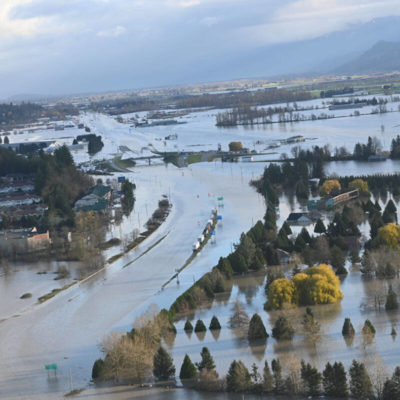This blog may turn out to be rather short, as I have a closing today and, to be completely honest, have not had much of a chance to think about, organize or otherwise compose a blog, never mind have any specific thoughts about a blog.
Given that the week that started out with me being almost stranded on a stretch of mountain highway out of cell range and in a snowstorm, taking 9 hours to go 125 kilometres out and back in a typical Alberta November garbage weather (sorry, I was in BC for a part of that) and then a mad scramble to fly out to the Okanagan to see a client, I can be forgiven, I think, for not being as prepared as I normally am.
For Stormont, I suspect this is going to be the order of the day for a while to come. We are busy, with closings, new deals going into the market and an M&A world that appears to be in a definite state of recovery. That’s part of the reason I found myself on the road – finally travelling for work again! And meeting humans, in person!
Ironically, the highway closure that I was part of and its attempts to keep me from doing my job, at the time it was happening on Sunday, was a big part of the weather story in Western Canada, before it was overtaken and easily eclipsed by what is happening west of where I was trying to reach and into the lower mainland.
We are used to garbage weather in Western Canada, especially in winter, and the mountains can be unforgiving, but the scale of this particular event, while not unprecedented, is nonetheless massive.
The natural disaster unfolding in British Columbia is due to an “atmospheric river”, ironically similar to the much more benign sounding “Pineapple Express” that brought warm temperatures and massive rain to the coastal mountain ranges, melting and washing early snowpack downstream to the various rivers and canyons flowing out to the Fraser River Valley and the BC Lower Mainland, leaving a trail of physical, emotional and economic carnage and devastation in its wake.
At this point, it is hard to tally the human and economic damage from this event, early estimates have it in the tens of billions. But there is little doubt that the BC economy and the lower mainland have received a gut punch that will take years to recover from and our thoughts go out to each and every person, business and living being (livestock or otherwise) affected by this disaster.
As resilient Canadians, we will recover, we always do. But the damage to the psyche and the sense of security that we always live with is going to be deep and long-lasting.
The impact on our supply-chains is going to exacerbate an already politically and fiscally fraught inflationary cycle and the reverberations around the world of Canada not being able to meet its resource export commitments are going to be significant. The value of trade in and out of BC is close to $2 billion per week and the energy we send through BC via the currently shut in Transmountain and Enbridge Gas pipeline is of critical importance to not only the Lower Mainland of BC, but also the entire Pacific Northwest. This is a big, big deal.
The response, as always, started from the bottom up. Stranded and isolated citizens helped each other out. Ordinary citizens in relatively unaffected areas stepped up and airlifted supplies and people here, there and everywhere. The Canadian Armed Forces mobilized and sent all they could to help. The trucking community soldiered on and TransMountain pulled crews off the Expansion project to assist with clearing debris off roads and opening temporary pathways. Even Via Rail showed up!
The politicians? Well, they did what they do. Those at the top flapped around like Pierre Poilievre in the House of Commons.
Local MPs and MLAs stepped up for their constituents regardless of political stripe and the closer the elected representative was to the disaster the more likely you were to see them filling a sandbag or rescuing a stranded cow. Trudeau took a long time to make any real statement and the BC government was bafflingly slow to declare an emergency, which I understand to be a function of structure, not planning. Other provinces pledged support, but there isn’t really much they can do unless asked except airlift supplies if needed to Vancouver or the Interior to go on trucks to affected areas. The Alberta government in particular was embarrassingly slow to react and publicly comment.
And just to make it a little more fun, or annoying, social media decided to join the party in an epic proliferation of smugness that featured the Climate Change warriors facing off against the “it’s just weather” crowd while the condescending “take that Wexit freaks” wrestled with the “now you know what it’s like to not have fossil fuels” knuckle draggers. Twitter was particularly helpful with one Ontario based moron suggesting that residents had brought this on themselves because they hadn’t voted for the right party. Good lord.
Personally, I’m going to resist the temptation to jump on a climate change bandwagon and proclaim that this is all the proof we need to eliminate fossil fuels once and for all. Nor am I going to be disingenuous and talk about how weather isn’t climate. If people can’t see this is all inter-twined in some fashion, I don’t have the time to argue the point.
What I will say is that in a world where we universally agree that we need to reduce carbon to mitigate the effects of man-made climate change, it is time to have the wake-up call that no matter what we do, it is going to take longer, be harder and cost more than anyone thinks and that it is high time that we started to realize that for better or worse we are going to have to take steps to adapt to a more volatile climate. Infrastructure that was designed for the realities of the last 50 years needs a refresh if it is expected to survive the next 30. Governments need to start actually being proactive to these issues and not just flap their gums about them. This will take resolve and money.
Whether that takes the form of better and stronger flood mitigation measures, better building codes, smarter land-use planning, more stringent rules for energy and other infrastructure, faster and more mobile emergency response for things like fire, flood and wind or just simply more effective contingency planning at the provincial and federal level, it’s time to admit that we haven’t done enough.
It’s all well and good to fly to Glasgow and piously declare fealty to the climate gurus and decry the increase in severity of weather-related events, but if you can’t be bothered to go out and get an adequate amount of emergency support vehicles like search and rescue helicopters to provide a rescue to stranded Canadians from just such an event, you have failed.
That a major city, in one of the richest first world countries on earth, can find itself cut off and put under state of emergency due to flooding that not only has happened before but has been warned about for decades (climate severity aside) is unconscionable.
The rail lines that unite a country, that we brag about incessantly as the predominant nation-building narrative, have for the first time since the famous spike in Craigellachie was hammered into the ground, been rendered inoperable. Swept away by rain, mud and a lack of redundancy and foresight.
Roads that were modern engineering marvels winding through high mountain passes have been rendered impassable by mudslides and raging rivers.
And people have lost their lives and livelihoods. It’s tragic.
We live in a country where climate change or no, the weather has it on for us. We know it and we do half measures. Let’s try full measures.
Fixing man-made climate change, even if you believe it possible, is going to take generations. We owe it to the future generations to not only reduce emissions but also to do whatever we can to climate proof the cities, towns and infrastructure we currently have for those future generations, otherwise what, exactly, is the point.
Net-zero by 2050! Great!
How about we try climate-proofed and backup systems in place by 2030. Not as sexy. But safer. Smarter.
Sorry. I don’t mean to downplay the current situation in BC. We lived through our own flood experience here in Calgary in 2013. We have our own flood plain issues. We understand intimately how unrestrained water and a lack of foresight and mitigation wrecks everything. I was just trying to take a step back and think of the best non-political lesson I can from this mess.
Final point – what can you do? Not much really in the immediate term except throw personal money at it before the government dump truck of cash shows up.
To that end, there are many fine charities around to help out our affected neighbours in BC. I find the Red Cross is one of the more effective in a national emergency and natural disaster. The link is embedded in the sentence and sentiment below.
Give early. Give generously. Give often.









